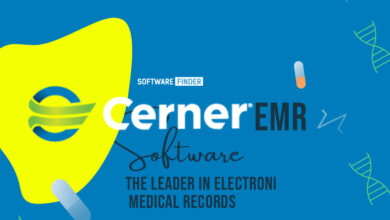8 Natural Remedies for Neuropathy Pain Relief

Neuropathy, a condition known for causing nerve damage resulting in tingling, pain, and numbness, often requires a combination of approaches to manage pain. While conventional medical treatments are an option, many people turn to remedies as complementary solutions to ease discomfort and enhance nerve function. In this article, we delve into eight methods that could provide relief.
Aromatherapy
Aromatherapy plays a role in the treatment of neuropathy due to its strong anti-inflammatory and pain-relieving properties. For instance, peppermint oil contains menthol that offers a cooling sensation to help alleviate pain. Lavender not only has calming effects but also acts as a natural pain reliever. To use these oils, mix a few drops with a carrier oil like coconut or almond oil and gently massage them into the affected areas. It’s important to dilute oils before applying them directly to the skin as they may cause irritation.
Other essential oils such as frankincense and eucalyptus are also beneficial because of their anti-inflammatory properties. Establishing a routine incorporating these oils can aid in managing pain and promoting sleep quality. To enhance the benefits, consider adding drops of oils to a warm bath before bedtime. Always perform a patch test on an area of skin to ensure there are no adverse reactions before using the oils extensively. Users should proceed with caution, though, as certain essential oils might interact with medications.
Vitamins and Supplements
When it comes to vitamins and supplements, nutritional deficiencies could worsen nerve damage and pain. Adding B vitamins, like B12, B6, and folate to your diet can promote nerve health and aid in repairing damaged nerves. Alpha-lipoic acid, an antioxidant, has demonstrated benefits in improving nerve function and alleviating symptoms in various clinical trials. Magnesium plays a role in regulating nerve function and can help alleviate pain as well. It’s always advisable to consult a healthcare provider before starting any regimen to ensure they are safe for you, especially if you have underlying health issues.
Omega-3 fatty acids from fish oil are also known for reducing inflammation and enhancing nerve health. Some experts suggest vitamin D to support nerve growth. It’s crucial to have discussions about these options with a nutritionist or doctor to tailor the supplements according to your needs. Regular blood tests can be useful for monitoring the effectiveness of these supplements, while patients should observe how their bodies respond since reactions may vary greatly from person to person.
Herbal Remedies
When it comes to remedies, nature offers solutions for alleviating neuropathic pain. St. John’s Wort, for example, has a history of being used to address nerve conditions because of its anti-inflammatory and nerve-protective properties. Turmeric, which is abundant in curcumin, is another herb recognized for its anti-inflammatory effects that can help reduce neuropathic pain significantly. These herbal remedies can be enjoyed as teas, taken in capsules, or used in extracts—depending on what fits your lifestyle and preferences.
Capsaicin, sourced from chili peppers, is another solution that can be applied topically to the skin to ease pain sensations. Ginger, known for its anti-inflammatory properties, can be ingested as tea or supplements to provide relief from pain. Ginkgo biloba is recommended for its potential to enhance circulation, which may be beneficial for individuals with neuropathy. It’s essential to consider interactions with prescription drugs when using remedies. Consistent use can lead to improvements; however, sticking to a routine is crucial.
Medical Cannabis
For some individuals, medical marijuana offers significant relief from pain. Certain cannabis varieties are particularly effective in alleviating pain and inflammation. If you reside in West Virginia and are contemplating this option, this is possible. Obtaining a WV medical marijuana card is the first step to take. This card enables you to legally purchase cannabis, granting access to a range of strains designed to alleviate pain. The cannabinoids present in marijuana, such as THC and CBD, have been found to interact with pain receptors in the brain, potentially diminishing pain signals.
Many individuals have shared that they experience improved sleep and reduced feelings of anxiety when using marijuana, which can indirectly impact how they perceive pain. Before exploring this possibility, it’s crucial to have a conversation with a healthcare professional who has expertise in the use of cannabis to determine if it’s suitable for your situation. The process of acquiring a marijuana card typically involves a discussion, filling out forms, and sometimes a payment. Once you have the card, it’s crucial to use marijuana responsibly and follow the guidance of a specialist to maximize its healing effects.
Acupuncture
Acupuncture is a practice originating from China that involves inserting needles into specific points on the body to alleviate pain. For those dealing with neuropathy, acupuncture has shown promise in enhancing blood flow and nerve function. Concerned about needles? Many patients have reported minimal discomfort and significant pain relief after undergoing acupuncture sessions. Acupuncture treatments often involve a combination of Chinese medicine practices, such as herbal remedies and cupping therapy.
It’s important to consult with a certified practitioner to ensure that treatments are carried out correctly and safely. The frequency of sessions may vary, typically ranging from weekly to monthly depending on how the individual responds. Many people consider these sessions to be a rejuvenating experience that provides both physical and mental relief. The benefits of acupuncture treatment are often noticeable after a few sessions, although some individuals may require longer treatment periods. Always make sure that your acupuncturist is aware of your history in order to customize the sessions accordingly.
Physical Activity
Physical activity can be challenging for those with neuropathy, but it is crucial for well-being. Supervised exercise and physical therapy can help strengthen muscles, improve motor function, and alleviate pain by stimulating nerves. Even simple activities like walking or swimming can be beneficial. It’s important to start gradually and increase intensity under the guidance of a therapist to prevent overexertion. Regular exercise can also enhance balance, which is commonly affected by neuropathy.
Gentle exercises such as yoga or Tai Chi are options for maintaining flexibility and reducing stress without putting much strain on the nerves. A skilled physical therapist can offer therapies that involve manipulating nerve pathways to reduce pain and improve function. Consistency is key, as sporadic activity may lead to muscle weakness and heightened pain symptoms. Many people discover that integrating activity into their routine not only enhances physical well-being but also uplifts mood and overall quality of life. Make sure to consult a healthcare provider to tailor your exercise plan to your health condition.
Use of Heat
The application of heat can offer relief from pain by boosting blood circulation and relaxing tight muscles. Utilizing heat pads, warm baths, or warm towels can be effective methods. However, it’s crucial to regulate the temperature to avoid burns, especially if your neuropathy affects your sense of touch. Combining heat therapy with treatments like massage or physical therapy can be particularly beneficial. It’s often advised to apply heat for 15-20 minutes several times a day.
For a deeper approach, consider exploring infrared heat therapy that penetrates beneath the skin’s surface. Many individuals appreciate the comfort provided by heat therapy, making it a preferred choice in pain management strategies. Additionally, it is convenient and can be carried out at home with minimal equipment required. Always consult a healthcare professional before starting any treatment to ensure its suitability for your individual health requirements.
Mindfulness and Relaxation Practices
Stress exacerbates symptoms. Practices such as meditation, deep breathing exercises, or yoga can help reduce stress levels and consequently alleviate pain. Engaging in these activities on a regular basis can also boost your emotional strength and overall well-being. Why not give it a shot? You may be pleasantly surprised by the relief it brings. Mindfulness has the potential to change how you handle pain, making it less prominent in your life.
Practices like progressive muscle relaxation can amplify this impact by easing muscle tension and promoting deep relaxation. Many people find that guided imagery and various meditation techniques are beneficial for addressing the emotional aspects of pain. Utilizing apps and online tutorials can be valuable for mastering these methods. Consistent practice is key, as the advantages of mindfulness and relaxation techniques accumulate gradually.
In summary, addressing neuropathy through natural methods includes approaches such as adjusting lifestyle habits and incorporating natural remedies and treatments. Each person’s journey with neuropathy is unique, meaning what works for one person may not necessarily work for another. Therefore, discussing these options with your healthcare provider is essential to ensure they complement your treatment plan and are safe for your health requirements.





